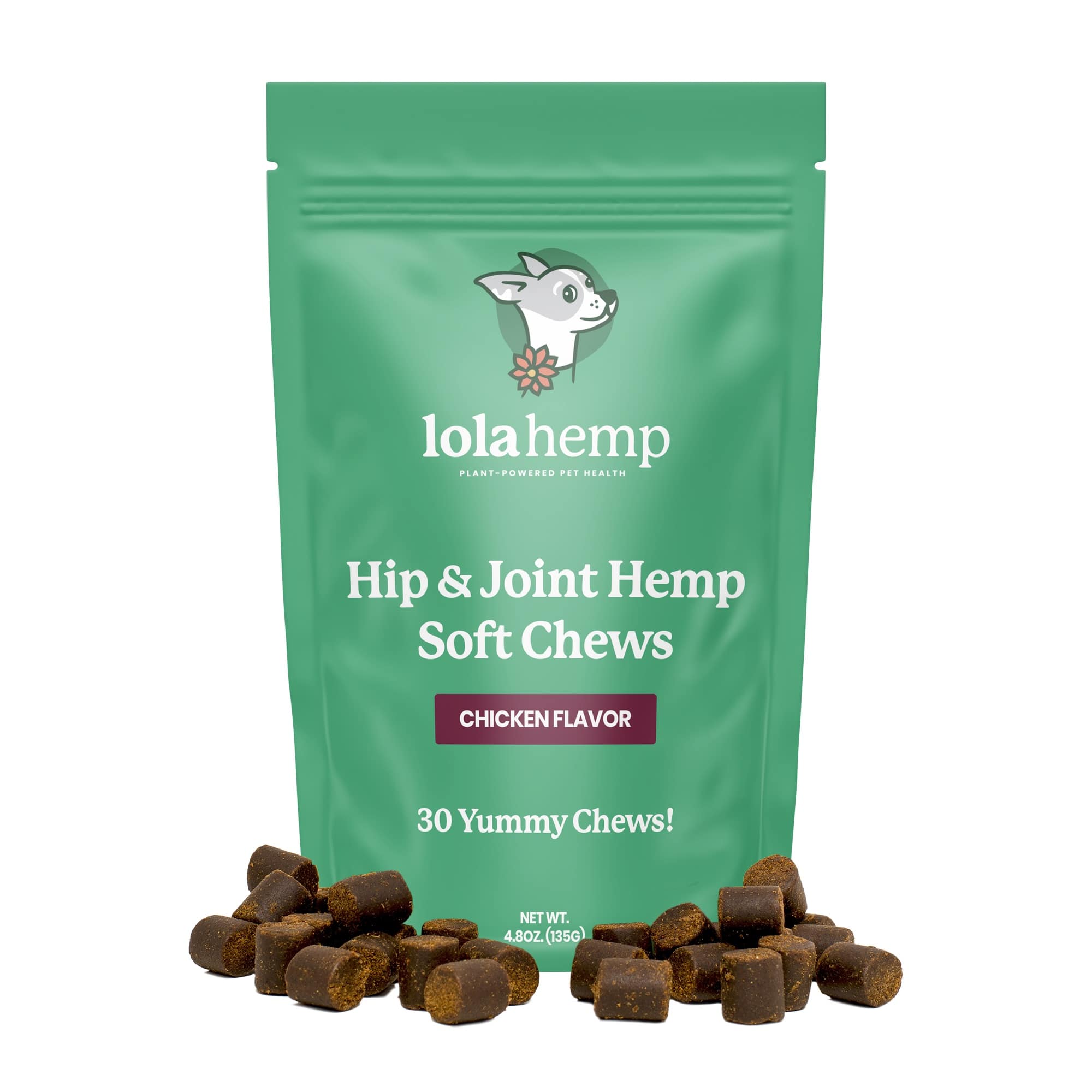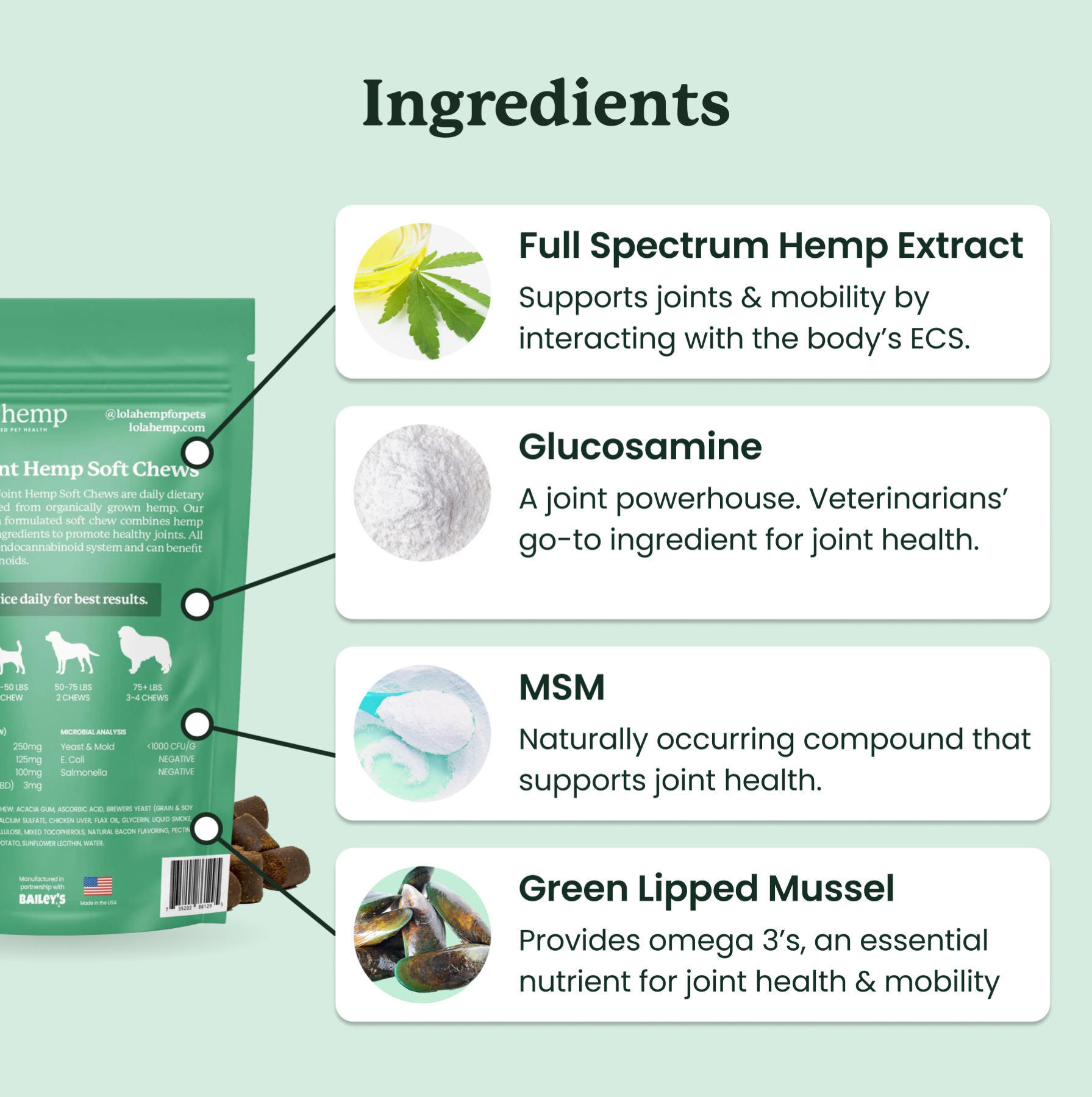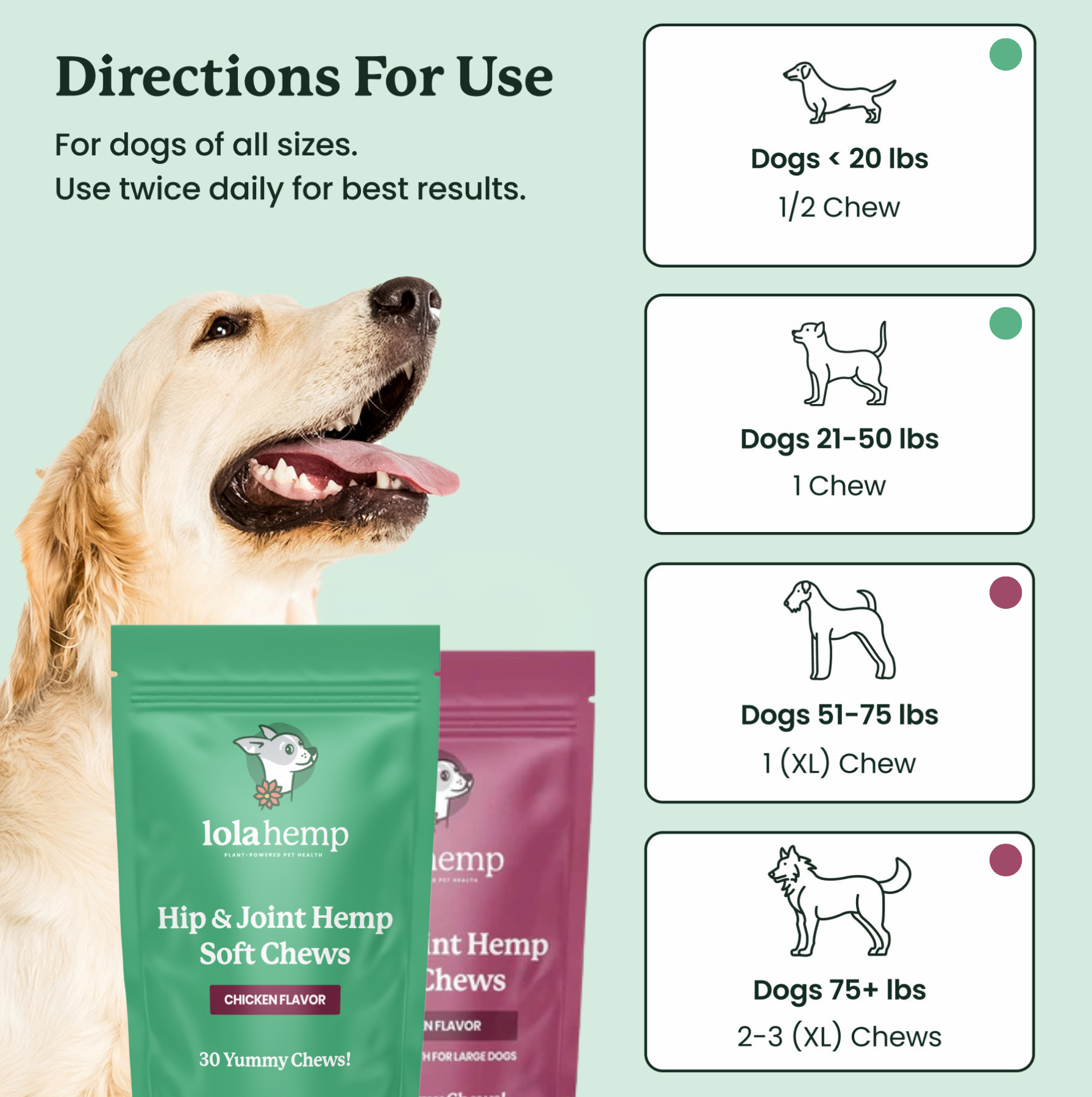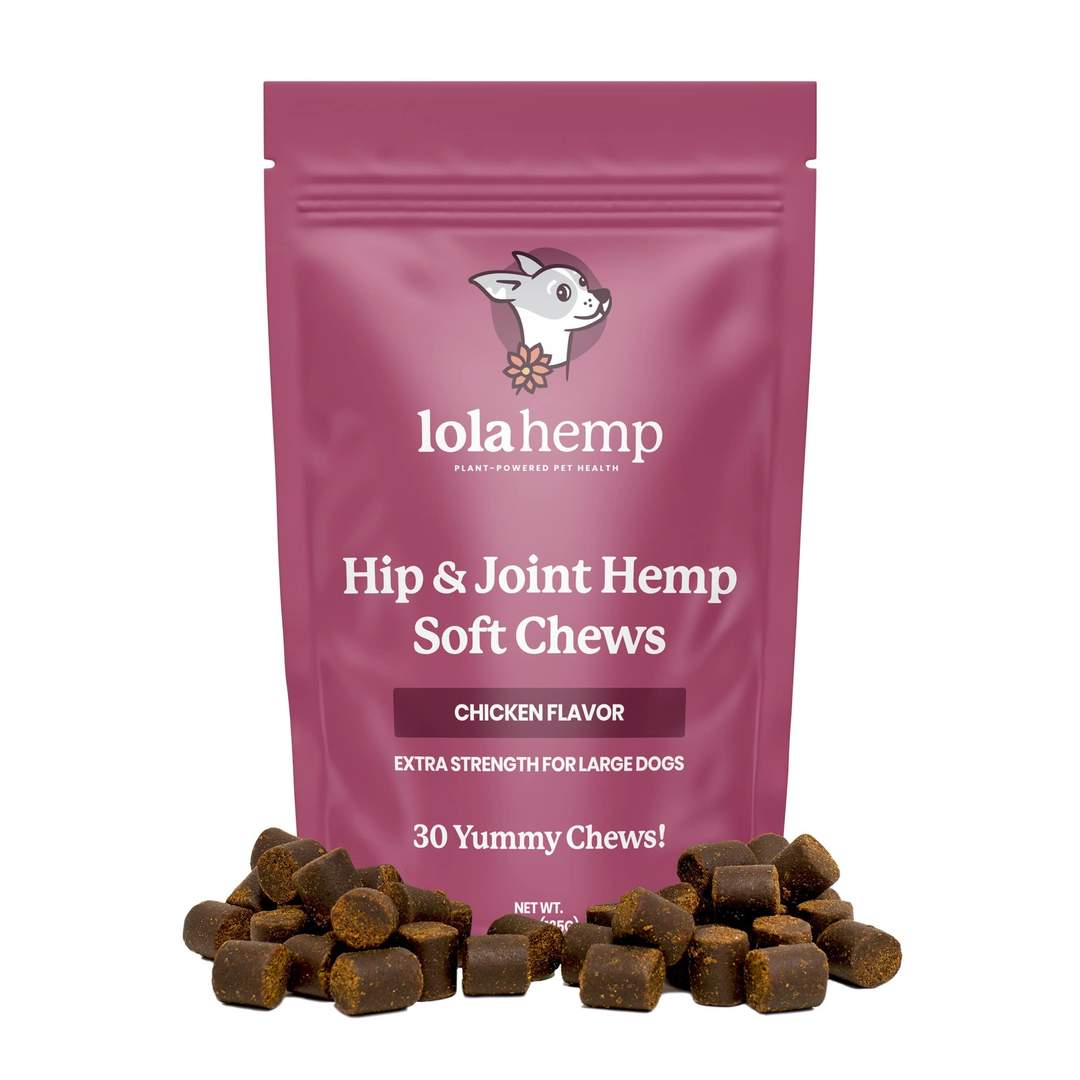Just like humans, dogs can develop inflammation which leads to a range of health issues and corresponding symptoms. But what is inflammation? When should it be treated, and how?
Inflammation in dogs is the body's response to injury or infection, causing swelling, pain, and heat in the affected area. Chronic inflammation can lead to discomfort and long-term health issues if not managed.
In this article, we'll discuss the biology of inflammation in dogs, diseases caused by chronic inflammation, strategies for reducing inflammation, and more.
What Is Inflammatory Response in Dogs?
Inflammation is a natural process produced by the immune system. There are many "natural anti-inflammatory" products for sale, but it's not necessary to reduce inflammation in every dog.
Most of the time, the inflammatory response protects your dog's body from germs like bacteria and viruses. It also clears damaged cells and promotes healing after injury.
The immune system is made up of specialized cells and natural signaling chemicals. This complex network controls the body's ability to fight off disease-causing microbes. A typical immune response involves redness, heat, and swelling; your dog may develop a fever, or the affected area may be warm to the touch.
Activated White Blood Cells & Altered Blood Flow
Immune cells are a key part of the normal inflammatory response. These cells monitor your dog's entire body; they are the first line of defense against many types of "foreign invader" like bacteria. Sending white blood cells to an infection or injury is like calling in a cleanup crew: they tidy up to make way for your dog's healthy cells to thrive.
During inflammation there is also increased blood flow to the affected area. Blood vessels widen in response to chemical signals from the immune system. These changes send more immune cells to the site and promote tissue repair.
Acute vs. Chronic Inflammation In Dogs
So far, we've discussed the upsides of inflammation. This type of acute inflammation occurs in the short term and resolves when the job is done.
In some cases the acute phase of inflammation can be dangerous, such as with severe allergies (anaphylaxis). But for the most part, short-term inflammation in dogs occurs for a good reason.
However, inflammation can become harmful when it lasts too long (chronic inflammation). If we follow the "cleanup crew" example mentioned earlier, chronic inflammation happens when the cleaners don't know when to stop.
During chronic inflammation, the immune system's efforts start to damage healthy cells. This "friendly fire" can wreak havoc and require treatment to reduce inflammation.

What Causes Inflammation in Dogs?
If your dog suffers from chronic inflammation, the right anti-inflammatory treatment will depend on identifying and addressing the root cause. Chronic inflammation is a prolonged response to injury or irritation, and if left untreated, it can lead to long-term pain or tissue damage.
Causes of Chronic Inflammation in Dogs:
- Infection with Parasites: Parasites such as worms, fleas, or protozoa can cause ongoing irritation in your dog’s system, leading to inflammation that persists without treatment.
- Allergies and Food Sensitivities: Environmental and dietary sensitivities can trigger chronic inflammation. Symptoms often appear as itchy skin, stomach upset, or respiratory irritation.
- Repetitive or Non-Healing Injuries: Injuries that don’t heal properly or are repeatedly aggravated can result in chronic swelling and pain.
- Chronic Stress: Stress hormones can increase inflammation in areas like the joints, skin, and digestive tract.
Inflammatory Diseases in Dogs
Inflammatory conditions occur when the immune system overreacts to a stimulus and doesn’t turn off properly. This prolonged inflammation can contribute to diseases affecting joints, skin, and the digestive system.

Joint Inflammation
Osteoarthritis is one of the most common inflammatory diseases in older dogs. It develops gradually as a result of wear and tear, causing stiffness, pain, and reduced mobility.
- Reduced activity
- Joint stiffness
- Difficulty getting up
- Reluctance to jump or climb stairs
- Weight gain
- Irritability
- Limping
Skin Inflammation
Skin inflammation (dermatitis) can develop from allergies, parasites, or infections. It weakens the skin’s barrier, causing itching, redness, and potential secondary infections.

Digestive Tract Inflammation
Inflammatory bowel disease (IBD) is caused by chronic inflammation in the gut. Common symptoms include chronic vomiting, diarrhea, decreased appetite, and weight loss. Diagnosis requires veterinary evaluation and testing to rule out other causes.
How to Reduce Inflammation in Dogs
Your veterinarian will identify and address the root cause of inflammation through examination and testing. Once the cause is clear, treatment can begin.
Anti-Inflammatory Medications
Veterinarians often prescribe non-steroidal anti-inflammatory drugs (NSAIDs) for dogs with chronic pain or joint issues. While effective, long-term use can affect the gut and kidneys, so proper dosing and monitoring are essential. Never give your dog human NSAIDs without veterinary guidance.
Managing Body Weight
Maintaining a healthy weight can help reduce inflammation. Excess weight puts extra stress on joints and increases the likelihood of chronic inflammation.
Diet and Nutrition
A balanced diet supports overall immune and inflammatory health. Avoid fatty table scraps, and choose foods rich in high-quality proteins and omega-3 fatty acids from sources like fish or flaxseed. These nutrients can help reduce inflammatory responses naturally.
Natural Anti-Inflammatory Remedies
Some natural supplements, such as omega-3s and CBD oil, are often used to support joint and immune health. Always consult your veterinarian before starting new supplements.
Conclusion
Chronic inflammation in dogs is common but manageable. With proper diagnosis, treatment, and ongoing care, you can help your dog live a more comfortable, active life. Work closely with your veterinarian to create a plan tailored to your dog’s needs.
Frequently Asked Questions
What are the most common signs of inflammation in dogs?
Common signs include swelling, redness, pain, warmth in the affected area, decreased energy, and changes in appetite or behavior.
Can inflammation in dogs go away on its own?
Mild inflammation from injury or infection often resolves naturally, but chronic inflammation requires veterinary attention to prevent long-term health issues.
What foods can help reduce inflammation in dogs?
Foods rich in omega-3 fatty acids, like salmon and sardines, and antioxidants such as blueberries and carrots, can help support a healthy inflammatory response.
Are natural remedies safe for dog inflammation?
Many natural options like fish oil and CBD oil may support comfort and mobility, but it’s best to consult your veterinarian before starting any supplement.
When should I see a vet about my dog’s inflammation?
If your dog shows signs of persistent swelling, stiffness, or pain that lasts more than a few days, schedule a veterinary visit to identify the cause and begin treatment.









